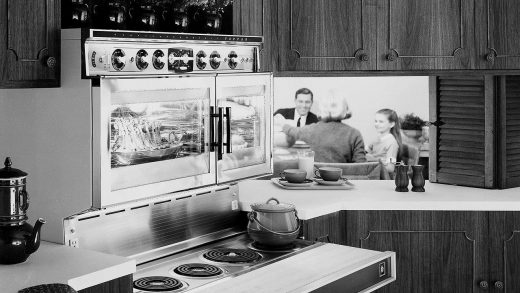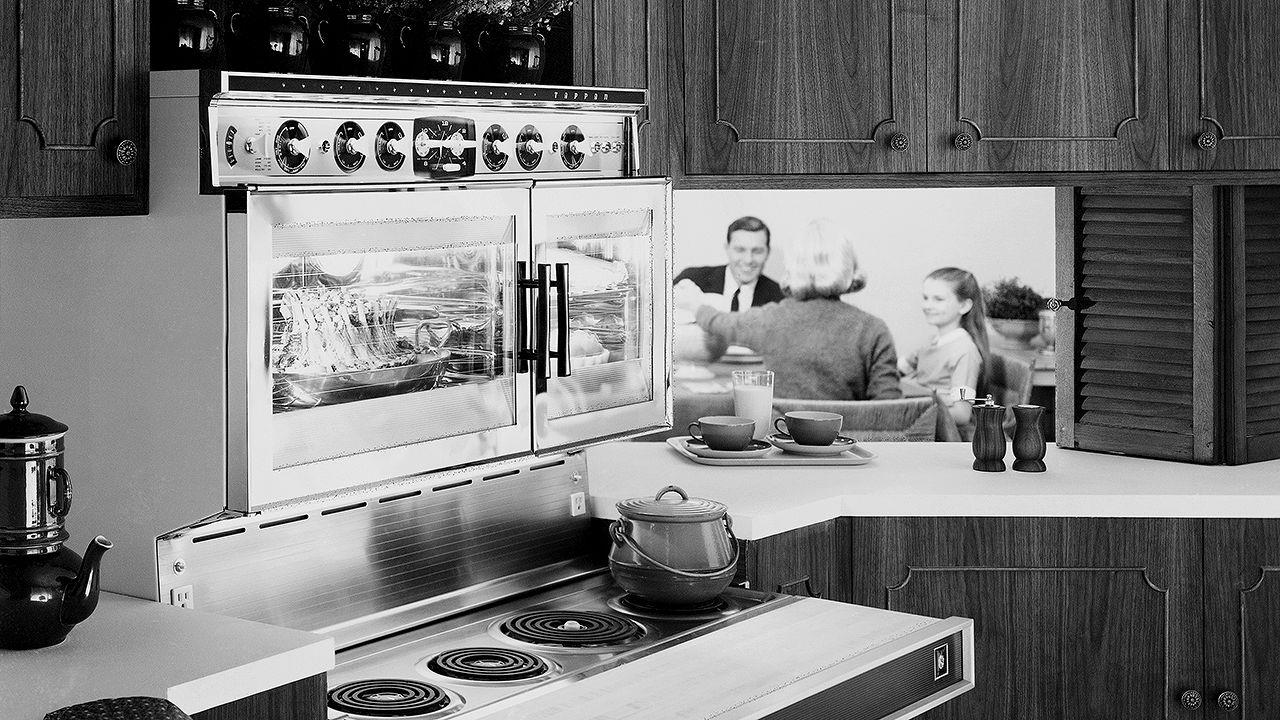What I Gained When I Threw In The Towel On Family Dinner
My mother put dinner on the table five or six nights a week when I was growing up, complete with salad and side dishes and place mats and ironed cloth napkins. For many years, I struggled to emulate my mom’s domestic achievement—even before I had kids. But I have been broken down since I started to attempt to feed three people other than myself, two of whom are children and one of whom is as picky as a child.
I’m on strike.
For the past month or so, with a few exceptions, I’ve been cooking dinner for myself—what I want to eat. My husband is totally on his own and the boys’ dinners are typically a blend of something fast from the kids’ menu (PBJ, mac and cheese) and something I made (chili, baked eggs). We all eat at the same time, just different dishes.
So far, our family has not yet fallen apart. In fact, my life is easier—but I still occasionally feel a pang that all I’m doing is giving my sons some type of eating disorder.
There are some things my family is losing by my strike, according to Anne Fishel, associate clinical professor of psychology at the Harvard Medical School and a founding member of The Family Dinner Project. “When you’re all eating a separate meal, it’s like going to a Cineplex and you go to your own movie. You still have the experience of going to the movies together and you can talk about your movies afterwards.” But in doing so, we lose something of the shared experience, she says, of “eating out of a common dish of string beans and cutting from the same piece of chicken or serving the same lasagna.”
This gives me pause about whether my choice was a good one for the family. But one thing I’ve learned through parenthood is that you cannot, indeed, have it all. Some priorities have to be made. And while I may, as Fishel says, have given up one particular dining experience, some things have been gained.
More Relaxing Between Work And Dinnertime
The time between the end of the workday and kids’ bedtime can be both stressful and tedious, a dance that involves entertaining children, getting dinner made and served, and then cleaned up, and then after that, bath and bed routines. Trying to cook for the family and make it Precious Quality Time is difficult if you’ve got small children.
That’s why New York writer Virginia Sole-Smith has chosen only one of these priorities: cooking. Family dinner, for her, “only happens by the grace of Peppa Pig,” she says. After picking up her toddler daughter from day care, she only has 45 minutes to get in the door and get dinner on the table. “Either we’re going to order takeout or she watches TV for a half hour while I make dinner. That’s how I make it happen.” Sole-Smith has written about her daughter’s struggles with a feeding tube, and for her, cooking is the battle she’s chosen, one she knows others might not prioritize. “I think there’s this unrealistic expectation that we need to have the meaningful family time at the table and have the elaborate family meals and have the kids participate. That’s too many expectations. Pick what you care about.”
Now that I’m cooking for myself, I do it primarily during the day, if I have time, and heat it up in time for dinner. Not fretting about sprinkling or stirring or browning means unfettered playtime with the kids before we eat.
Less Time Wasted Trying To Please Everyone
Everybody with a palate has food preferences, but my husband is pickier than my 3-year-old son. I made a list of his “won’t eat” foods, which is as follows: mushrooms, onions, eggplant, eggs, avocado, tomatoes, sour cream, creamy dips, shellfish, soft cheese, semisoft cheese, excessive cheese, meat that is not pork, chicken, turkey or beef, meat that is rare, meat that is medium, meat with bones in it. (What’s left?) My husband told me that I’m than welcome to cook what I really want to eat for myself but, pre-strike, this seemed weirdly antisocial. Post-strike, cooking what I want, when I want (and either having leftovers or sharing with the kids) makes cooking fun again. Earlier this week I made a big batch of Ina Garten’s Middle Eastern salad (which my husband didn’t touch because of the tomatoes and feta), enjoyed it for several days, and shared it with my kids.
Additionally, this has been good for our relationship. Due to my husband’s choosiness, I’d occasionally get the feeling that all my menu planning, shopping, meal prep, cooking, and then serving was unappreciated. Cooking for myself removes that grand marital setup of passive aggression and resentment, an opting out of worry that I already have enough of.
A Smaller Waistline
The number of foods that please my preschooler, husband, and myself are small and don’t really count as “eating clean:” Grilled cheese. Spaghetti with meat sauce. Tacos. Delicious, but not something my jeans can take me eating a lot of.
Eating more than you typically would is a reality for many parents. “It’s so much harder to lose weight when eating as a family,” agrees Deb Perelman, mother of two and author and blogger at the Smitten Kitchen. “With the family, I always feel the need to put out more. My husband and I will eat meatballs and a salad; with a kid, you’ve got to throw in pasta or you’re a monster. All of a sudden, my self-sustaining meal is a self-widening one.”
Since I quit cooking for the family, I’ve lost the last few pounds of baby weight, in part because I am free to eat loads of the protein and produce-dense meals that fill me up that I know my husband or kids won’t come near. Sometimes you just want a frittata for dinner, and now I feel free to make the healthy choices when I want to without worrying that I’m being a drag.
In the end, if we’re not eating from the same bowl or even the same food groups, my family and I are still sitting at the table at the same time, which I feel is an achievement. A good deal of the time we even have fun together. According to Fishel, even without the one main meal, the experience is still beneficial for my family. “All the benefits to the brain and the body and the spirit are still maintained, even if you’re making four separate meals. So you still get the vocabulary booster—table conversation is great for young kids—that’s still intact.”
So I might have sacrificed something for my family by putting a pause on family dinner (I envision getting serious about it again when my boys are older), but what everyone has gained is a happier me, which must be at least as valuable as one big lasagna.
Fast Company , Read Full Story
(19)














